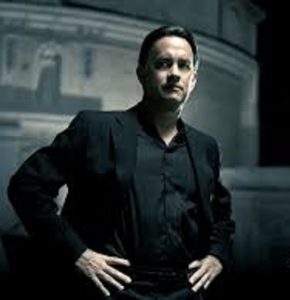Inferno is upon us.
Inferno (2016) is the third adaptation of a Dan Brown thriller. The previous ones were Angels and Demons (2009) and The Da Vinci Code (2006). Inferno comes to North American theaters this week.
Inferno stars Tom Hanks and Felicity Jones. Hanks recently starred in Sully a major motion picture which was released in September. All the attention on Felicity Jones is her upcoming Star Wars headline role. It appears her turn in Inferno is in the shadow of her Star Wars film in December.
Robert Langdon (played by Hanks) is a symbologist who has been on a search for the truth behind Christianity, the Catholic Church and the supernatural world. In Inferno, he’s onto a riddle involving a literary masterpiece, the first part of Dante’s Divine Comedy, Inferno. The epic poem was written in the 14th century.
The stories go back into religious history, namely Christianity, and what this means today. There is controversy that the novels and movies don’t represent Christian history and doctrine accurately.

Viewing The Da Vinci Code
When I reviewed The Da Vinci Code in 2006, I was given the job of reviewing it as a thriller. The editor regarded the book as fiction and wanted me to review it as such.
The movie was provocative and intriguing. I read the book instinctively and found it a riveting read. The question of its history wasn’t on the job description.
What this says is taking the Dan Brown novels and film adaptations as fiction. Viewing them as fiction paints the films in a whole other light than dismissing it for its historical and doctrinal inaccuracy.
Personally, I’m not a fan. I think Dante’s Divine Comedy is more interesting.
Though I appreciate that Dan Brown is telling a story and there is a spiritual search inherent in the stories. Where this search leads is of great interest. I appreciate that he resurrected the religious thriller. But since the stories appear to deconstruct ‘the faith’ as I know it, unfortunately, I’m a little skeptical.
